HERCCULES is a European project granted under the Horizon Europe framework programme. HERCCULES aims to accelerate the application of the CCUS in Mediterranean Europe, leveraging on the transport and storage initiatives already under construction in Italy and Greece and developing innovative capture technologies.
Starting date: January 1st 2023
Project duration: 60 months
EU contribution: € 29.632.076,48
Number of partners: 23
Coordinator: LABORATORIO ENERGIA AMBIENTE PIACENZA (LEAP)
The application of CO2 capture technologies is an essential element for the achievement of carbon neutrality by 2050, based on the scenarios outlined in the European directives and in the recommendations of the Commission itself. In Europe, there are today about 70 CCUS (Carbon capture, utilization, and storage) projects at various stages of development, concentrated almost exclusively in the Northern countries. In this framework, HERCCULES aims at defining a first-of-a-kind, integrated and replicable approach for the implementation of the whole CCUS chain to two strategic sectors of the circular economy – Cement and Energy-from-Waste (EfW) – in an area – Italy and Greece – where the industrial promise of CCUS is largely unexplored. Leveraging on the potential of two clusters of emitters in Northern Italy (cement + EfW) and Greece (cement), HERCCULES will pave the way towards the implementation of the first full-scale CCUS chain in Southern Europe.
Over 9,000 hours of testing will be dedicated to demonstrating innovative CO2 capture processes installed in two cement plants. The experimental plants will be based on advanced oxy-combustion and post-combustion capture technologies such as Calcium Looping combined with cryogenic purification processes, capable of separating CO2 with efficiencies and purities close to 100%. Part of the pure CO2 flow will be used in mineralization processes for new cementitious materials production that could replace conventional concrete (characterized by a high carbon footprint).
The activities will also include the transport of CO2 from the industrial capture sites to the two geological storage sites at Ravenna (in Italy and Prinos in Greece, to complete the demonstration of the entire CCUS supply chain.
The technological, infrastructural, safety, regulatory, and financial aspects will be addressed with a multidisciplinary approach, which will allow the creation of industrial communities capable of exploiting the synergies between the processes of the CCUS supply chain. Universities, research centers, and consulting companies will develop business models of HERCCULES technologies sized for future full-scale applications.
FOLLOW the HERCCULES:

![You are currently viewing HERCCULES project – Full CCUS chain demonstration [2023-2028]](https://shogenergy.eu/wp-content/uploads/2023/07/Screenshot-2023-07-26-at-12.58.27.png)
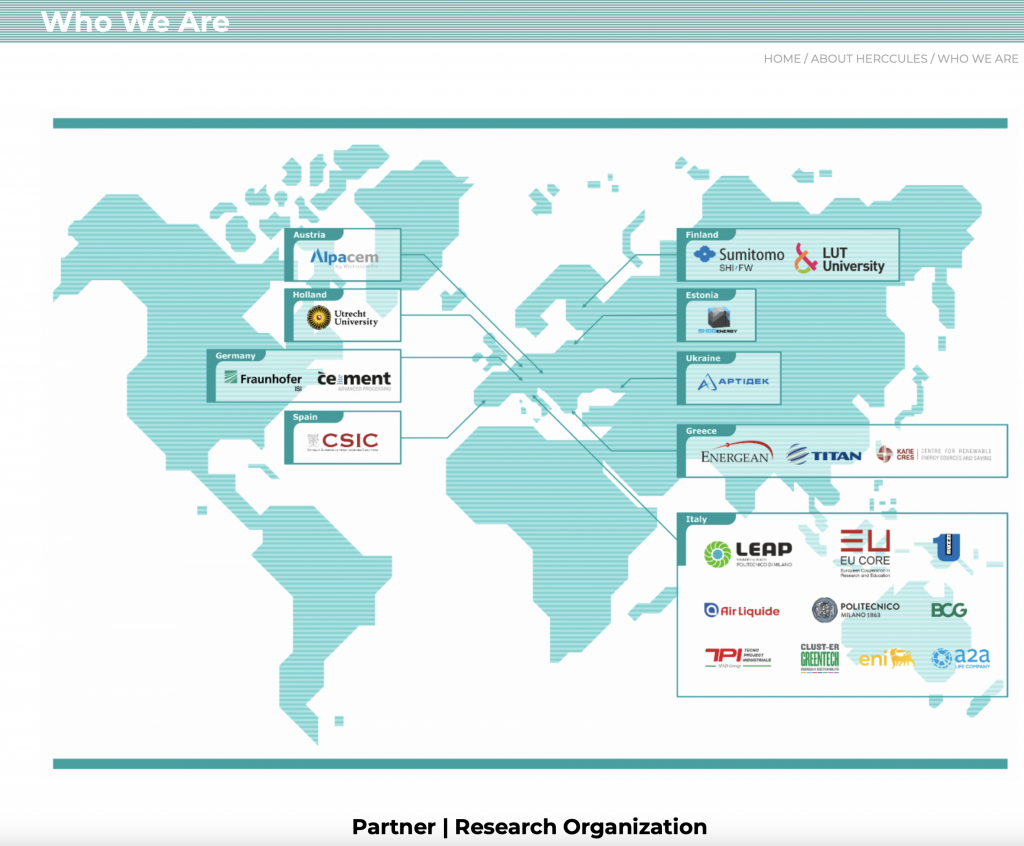

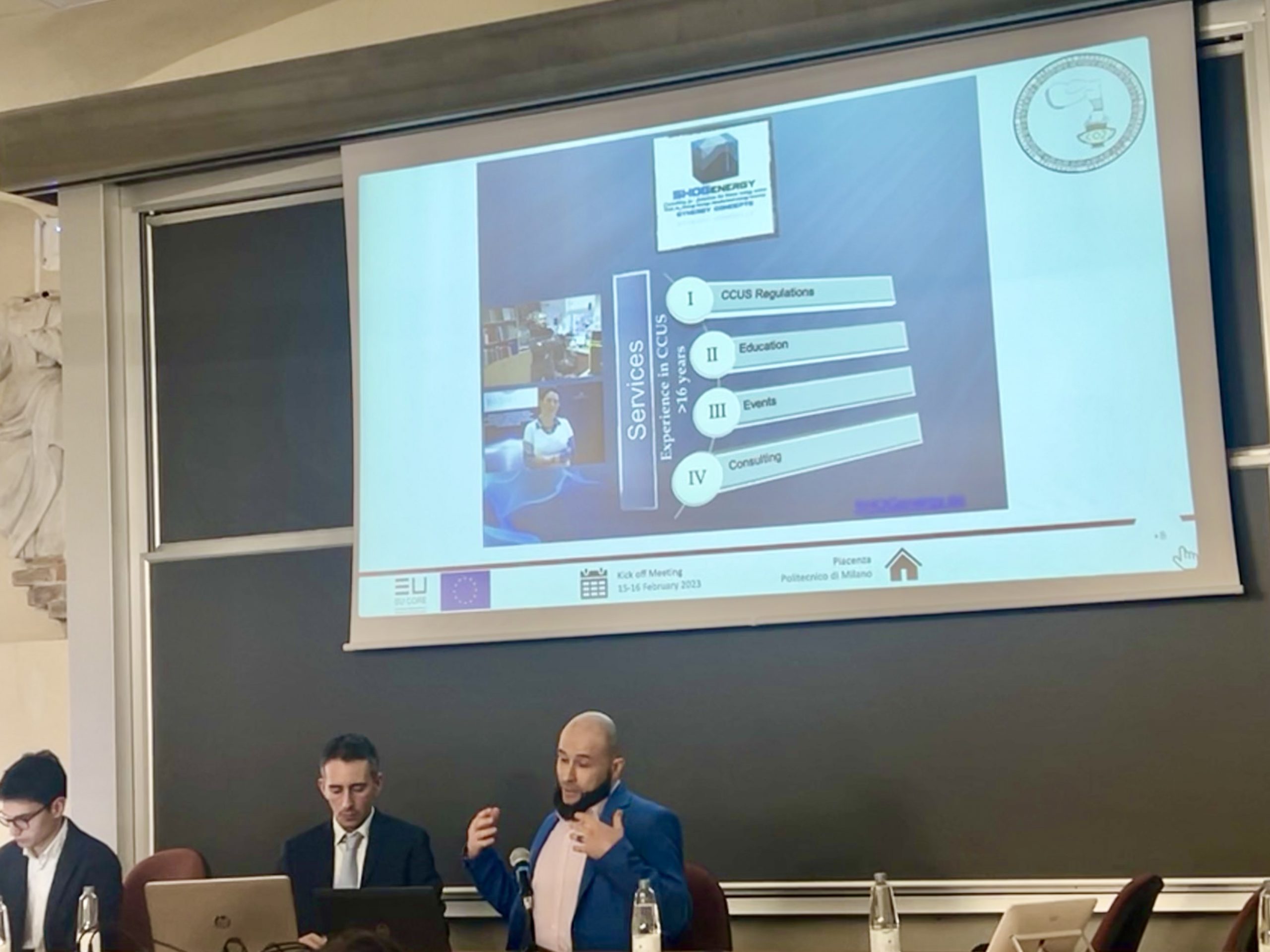
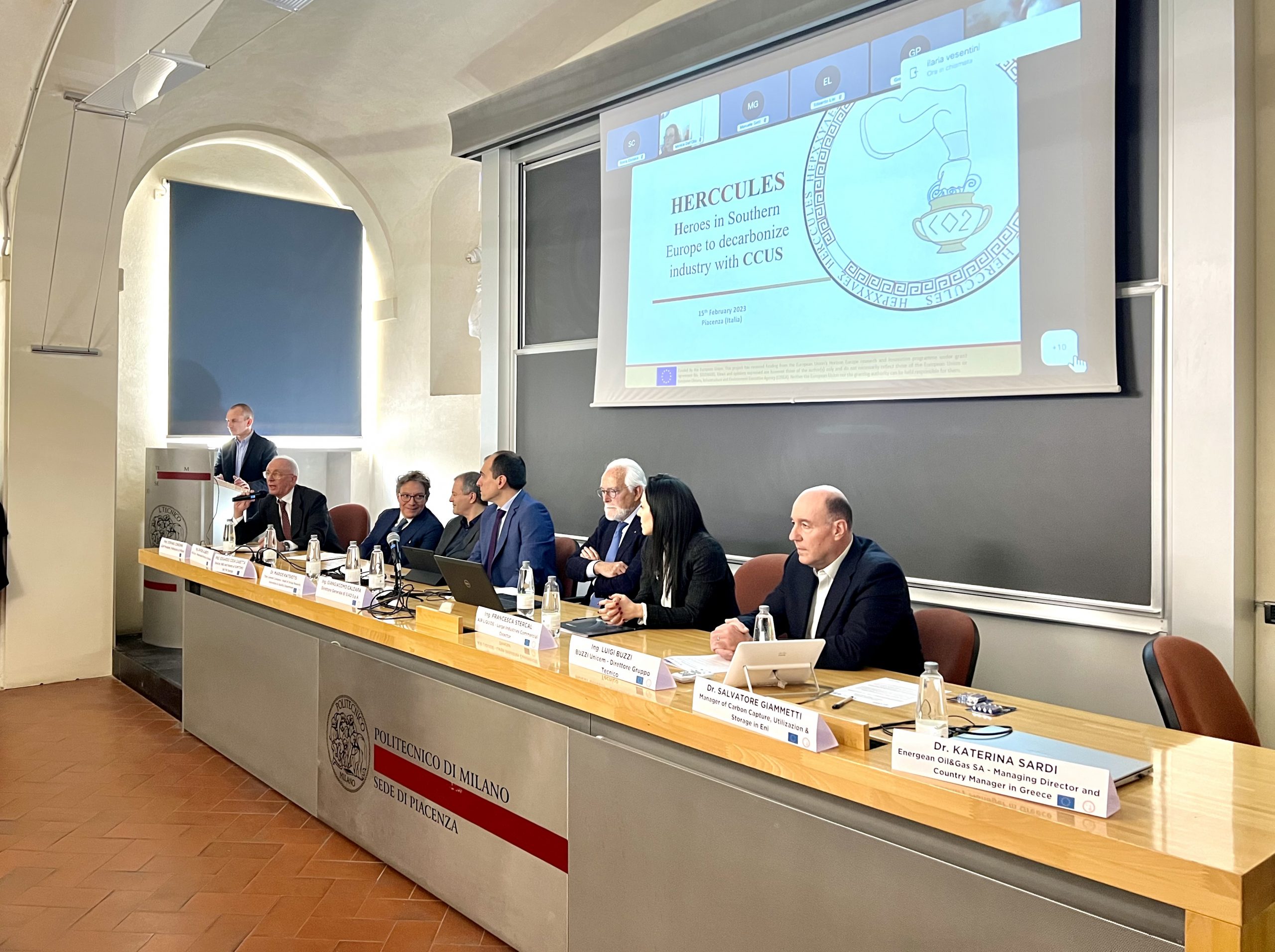
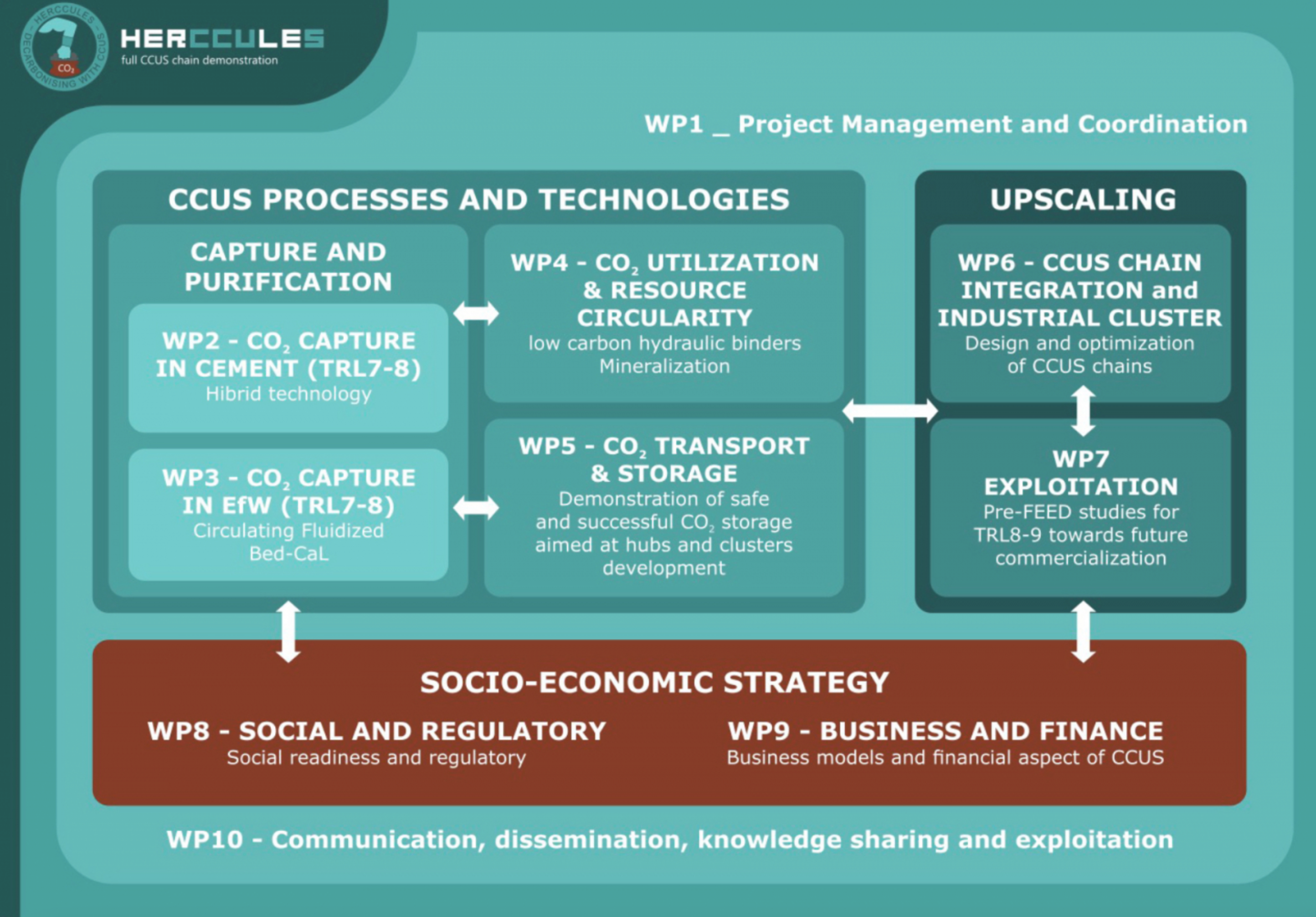
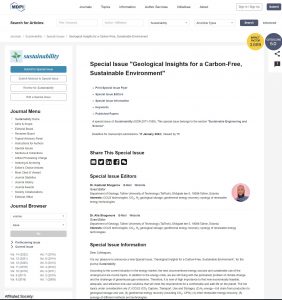

![Read more about the article A new innovative CETP project CTS has started [2023-2025]! Kick-off meeting.](https://shogenergy.eu/wp-content/uploads/2024/02/IMG_2059-300x169.jpeg)